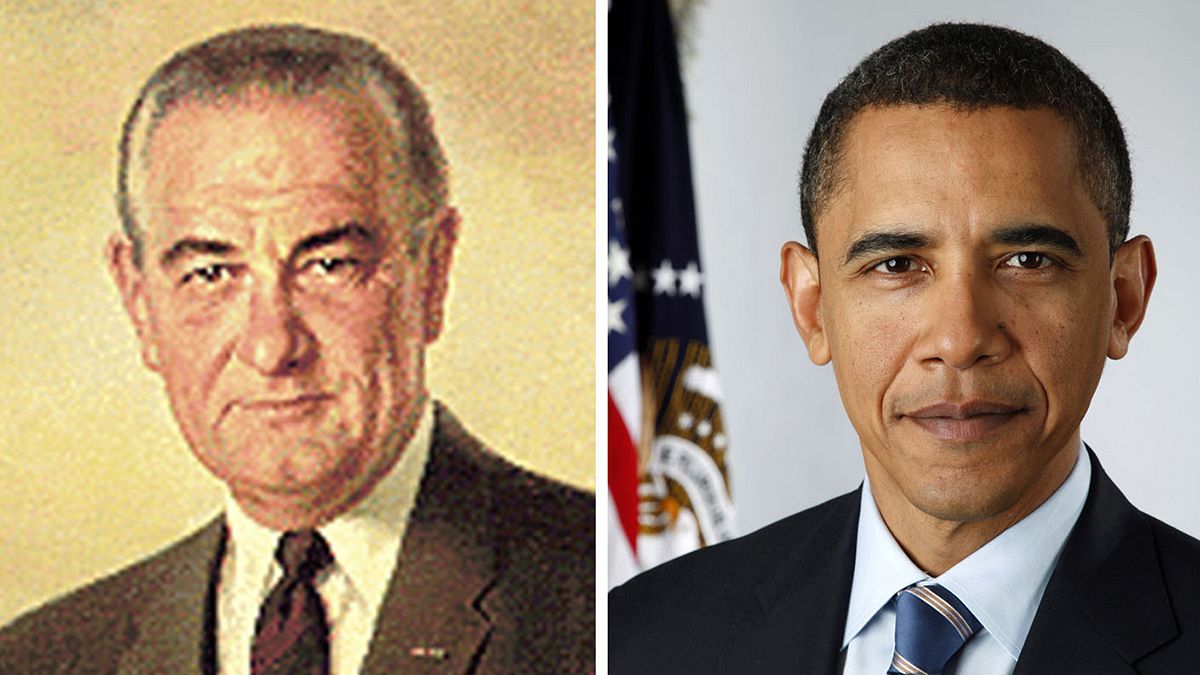The anniversary could not have been more fitting: As the Obama administration is struggling to push an extension of unemployment benefits through a reluctant US Congress, the country commemorates the 50th anniversary of President Lyndon Johnson’s “War on Poverty” speech on January 8, 1964.
Just two months after the bullet that killed John F. Kennedy had propelled the Texan into office, a deeply humbled and sad-looking Johnson addressed Congress for the first time as president. In an effort to stress political continuity, LBJ picked up issues most important to Kennedy’s heart.
But Johnson aggressively – and surprisingly for many – went a step further: Singling out social issues as the most important domestic topics on his presidential agenda, Johnson declared an “unconditional War on Poverty” whose objective he summed up in two words: “total victory”.
That “War” created a number of important federal and state initiatives that remain in place today – from Head Start to nutrition assistance to Medicare and Medicaid.
These initiatives, coupled with the civil rights advances of the era and the overall strong economy in the 1960s, led to a reduction in the number of people living in poverty from around 19 percent of the population to a historic low of 11.1 percent by the early 1970s. Until then, the poverty rate has ticked up again to around 15 percent, according to official data.
President Barack Obama on Wednesday praised Johnson’s crusade as an “economic and moral mission” that helped “each and every American fulfill his or her basic hopes”. Through jobs and education, new opportunities were created, and access to health care for seniors, the poor, and people with disabilities were expanded, Obama said in a written statement.
But today’s Democrat in the White House also warned the nation that Johnson’s “War on Poverty” was not something merely for history books. “As every American knows, our works is far from over”, Obama said.
“In the richest nation on Earth, far too many children are still born into poverty, far too few have a fair shot to escape it, and Americans of all races and backgrounds experience wages and incomes that aren’t rising, making it harder to share in the opportunities a growing economy provides”, Obama said.
Instead, the President said, America must redouble the efforts to make sure the US economy works for every working citizen. “It means helping our businesses create new jobs with stronger wages and benefits, expanding access to education and health care, rebuilding those communities on the outskirts of hope, and constructing new ladders of opportunity for our people to climb.”
Not an easy task. Obama’s efforts to raise minimum wage, provide health care to all Americans and lobby for better public education are routinely torpedoed by Republicans. The latest battle in Obama’s “War on Poverty” is fought over unemployment.
At the end of December, the emergency laws that extended jobless benefits beyond the traditional 26 weeks expired, forcing about 1.3 million people off the program. More unemployed Americans will lose their benefits as the year progresses and they surpass their states’ normal timelines.
In a rare, if modest legislative victory for Obama, the Senate on Tuesday advanced a measure that would extend unemployment benefits. After intense lobbying by the White House, six Republican senators voted with the Democratic majority. This victory may be temporary, because the measure still faces big hurdles in the Senate and is expected to be dead on arrival in the Republican-controlled House of Representatives.
Nevertheless, poverty and economic opportunity seem to be emerging as key issues in the rapidly upcoming Congressional election campaigns. With unemployment rates higher than the national average of 7 percent in many conservative districts, Republicans members of Congress may want to think twice about their opposition to extended benefits. For many families, these benefits represent the only economic lifeline.
In an effort to take the debate from the politically dysfunctional capital to the real life – all politics is local! – Obama on Thursday designates troubled neighborhoods in five cities and areas as “Promise Zones”, eligible for tax breaks and other forms of assistance designed to create jobs and improve education, housing and public safety.
These “Promise Zones” are located in San Antonio, Philadelphia, Los Angeles, Southeastern Kentucky, and in the territory of the native Choctaw Nation of Oklahoma.
In this election year, the “War on Poverty” has just begun.
